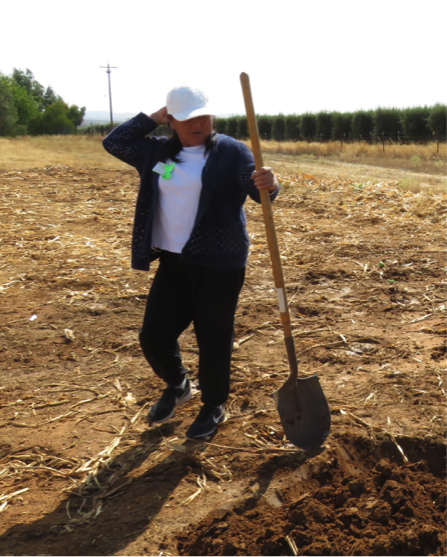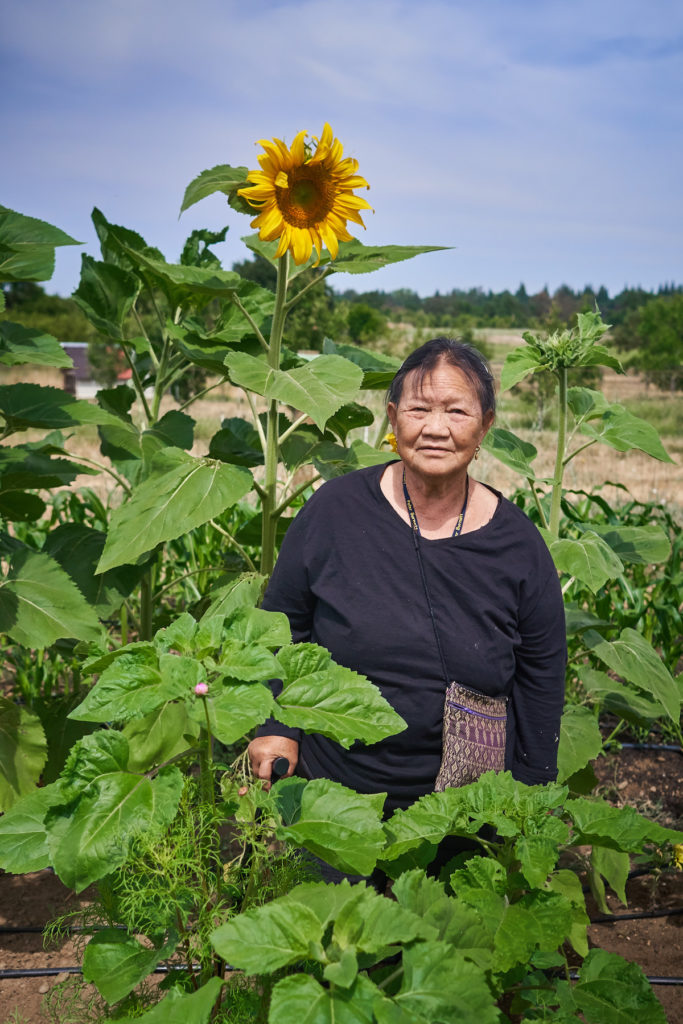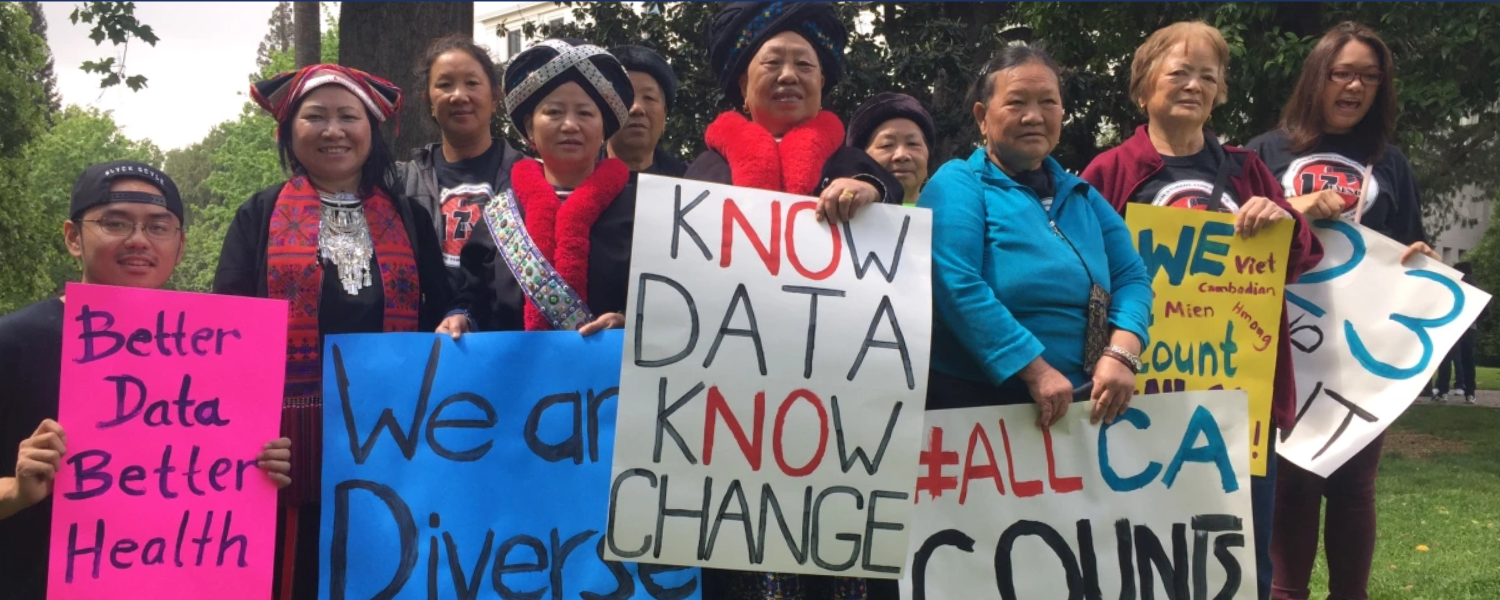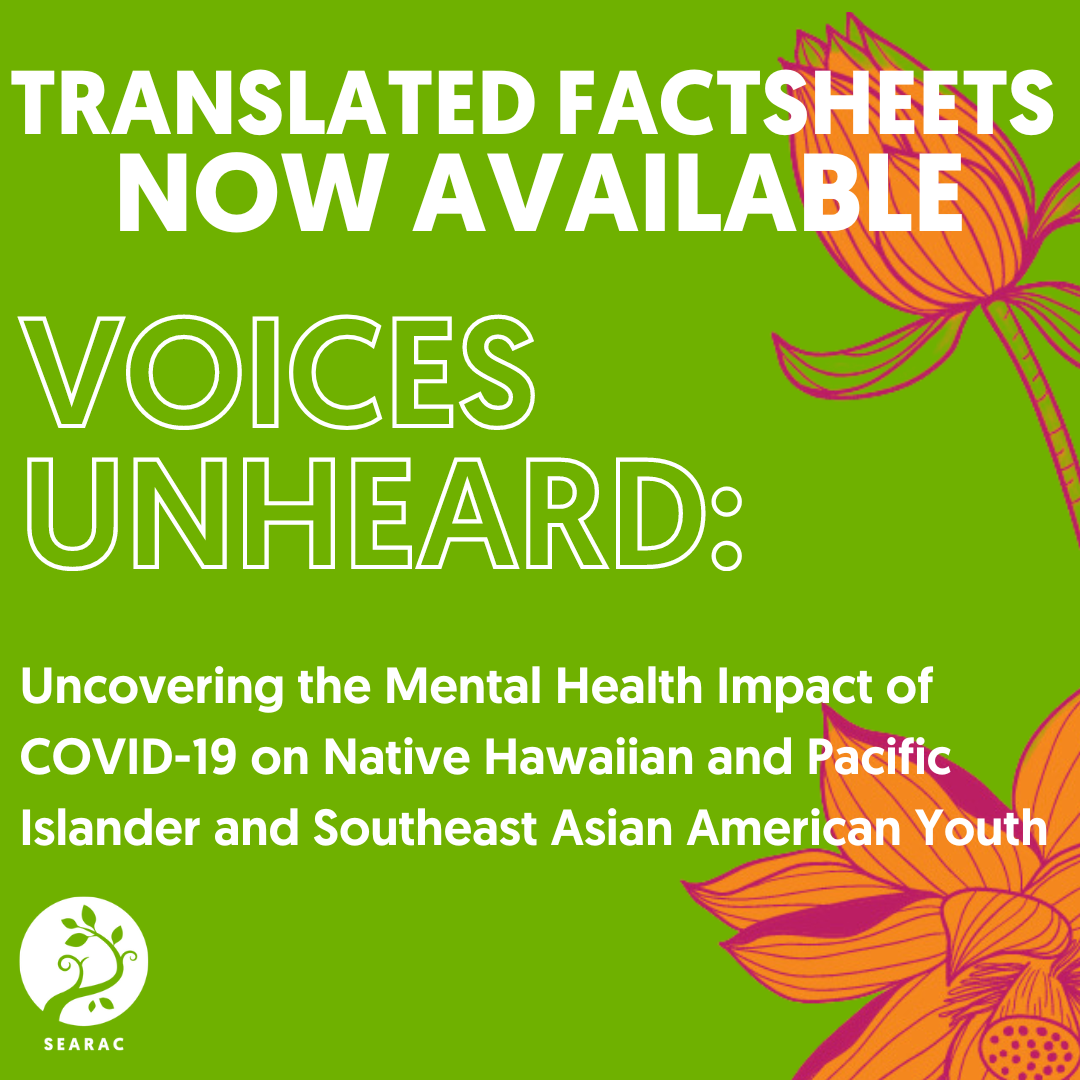August 7, 2019 IN: California, Health
The Lifesaving Care of Culturally and Linguistically Competent Mental Health Services
While Minority Mental Health Awareness Month has ended, SEARAC continues to urge policymakers to improve the cultural and linguistic competence of California’s mental health delivery system.
Since November 2004,the Mental Health Services Act (MHSA) has imposed a 1% income tax on individuals with an income of over $1 million, and as a result, California has funneled more funding than ever before to improving and increasing access to mental health services. According to the California Department of Health Care Services, approximately $1.8 billion was deposited into the Mental Health Services Fund (MHSF) in the fiscal year 2016-2017, with the amount projected to gradually increase to $2.2 billion by the 2018-2019 fiscal year.
However, even after almost 15 years since the act’s implementation, Southeast Asian Americans (SEAAs), communities of color, and LGBTQ+ community continue to face barriers in accessing and utilizing mental health services. In fact, Asian American and Pacific Islander adults have been shown to be the least likely racial group to access specialty mental health services even once, with just 2% of the population obtaining care.
Culturally and linguistically competent mental health services are critical in ensuring access for SEAAs, communities of color, and LGBTQ+ community. For these reasons, SEARAC took on the effort to co-sponsor AB 512 – Cultural Competence in Mental Health.
Southeast Asian American Mental Health Awareness Spotlight:
The limiting state definition of a threshold language has left minority Southeast Asian American groups like the Hmong and Iu-Mien communities to experience even greater cultural and linguistic barriers to accessing mental health services. Due to the lack of translated materials and interpretation available in doctor’s offices, the Hmong Cultural Center of Butte County (HCCBC) and Iu-Mien Community Services (IMCS) have risen to fill in existing gaps to ensure their community has a fighting chance.
Despite being in the top three languages most spoken in Butte County, Hmong isn’t considered a threshold language, and as a result, CA counties are not required to translate materials or have interpreters available in Hmong. HCCBC is one of few organizations providing culturally and linguistically competent mental health services to the Hmong community north of Sacramento, CA.. Through its innovative programming blending Western and traditional cultural treatment, HCCBC has been able to support the mental health needs of Hmong elders experiencing trauma, stress, anxiety, isolation, stigmatization, and depression.
Mary Lor, an active participant in HCCBC’s Zoosiab program shares the power of culturally and linguistically competent mental health services.

Mary shares: “I was referred from Butte County Department of Behavioral Health to the Zoosiab program and I feel that the program has done a great deal in educating me in ways to cope with my stress, raise mental health awareness, learn life skills, and etc. The services at HCCBC are important, because I do not feel judged [here]. The recreational group that I attend is comfortable and like no other [support] group because the staff speaks my native language and respect who I am. Since participating in the Zoosiab program, I have increased my mental wellbeing and reduced my stress and depression… Without the Zoosiab program, I don’t think my mental wellbeing would be as good because I lack the resources and services to navigate mental health services due to language barriers and mental health stigma.”

Similarly, the Iu-Mien community faces a similar struggle by not meeting the threshold standards in Sacramento County, despite Sacramento having one of the country’s largest populations of Iu-Mien. IMCS is the only non-profit organization specifically serving the Iu-Mien community, providing an array of intergenerational and culturally responsive programs and social services to address depression, stress and isolation.
Pian Va Saelee is a participant of IMCS’ Healthy Village Senior Group, a program that connects Iu-Mien community members in their early 40s to 80s to their community.
Pian shares: “This program is very important to me because it gives me an opportunity to meet with my friends weekly to share stories, foods, and information to help us live better. I don’t feel alone like I do a lot of time at home by myself. When I arrive at the group, I am accepted and not judged. The staff is very supportive and helpful. I love to see them because they look like my children and they respect me. … I don’t know what to do and where to go if IMCS no longer provides this service. I would probably have to spend more time alone at home.”
Culturally and linguistically competent mental health services are lifesaving, but mental health services in California have not been doing enough to serve the SEAA community, communities of color and LGBTQ+ community. To read more community stories on the need for culturally and linguistically competent mental health, please visit our California health and aging news.
TAKE ACTION: Support our culturally and linguistically competent mental health by telling your Senator to support AB 512
Community members have shared with us the need for culturally and linguistically competent mental health, and we have been listening. CA AB 512, to improve cultural competence in mental health, has moved forward and passed out of the CA Senate Health Committee. AB 512 will now move to the Senate Appropriations Committee for a fiscal analysis.
Contact your CA senator today to advocate for culturally and linguistically competent mental health services and support AB 512.




